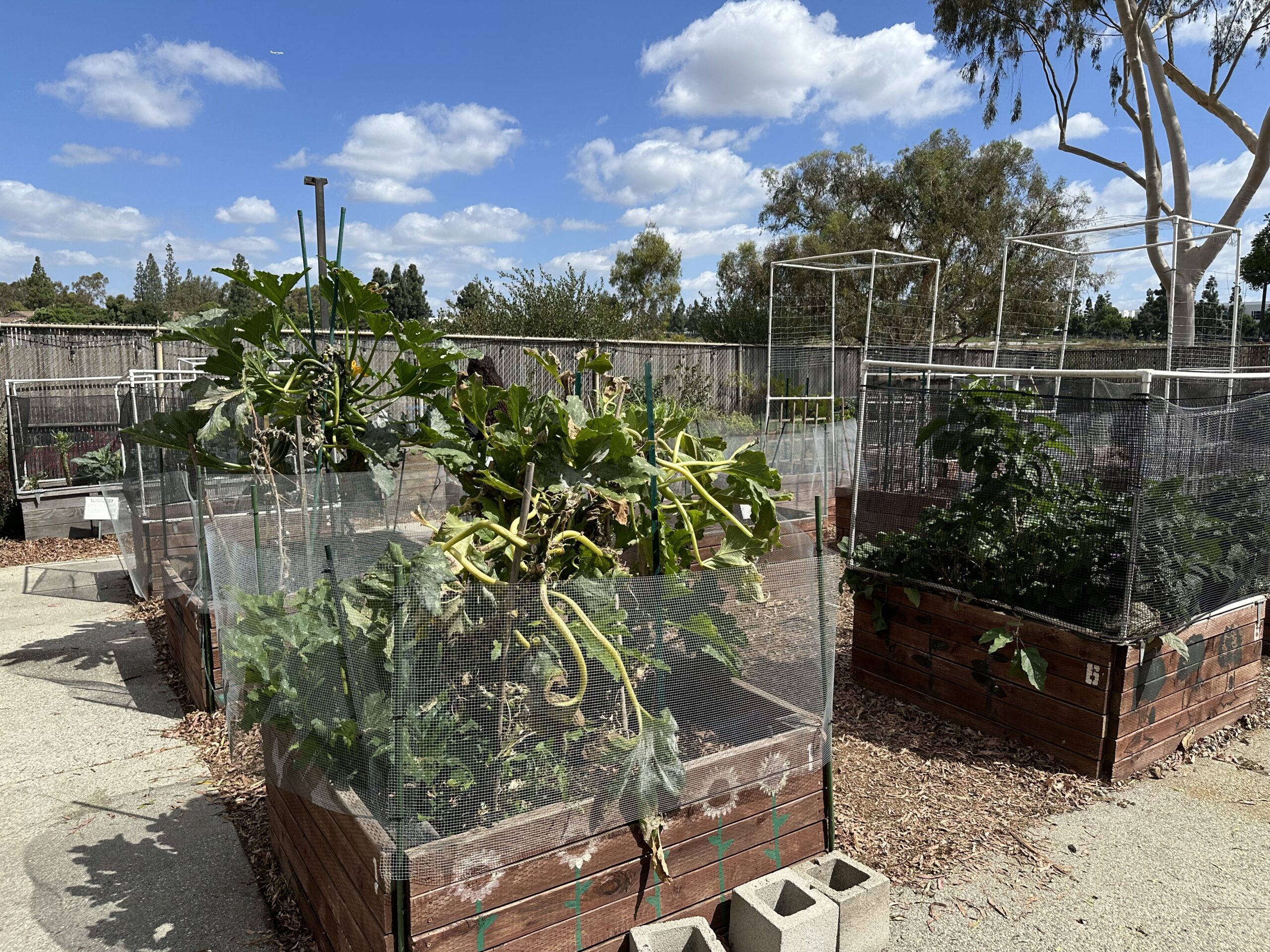Shop is one of several Sustainability Club initiatives on campus
For Toros looking to declutter their closets and cupboards, the CSUDH Sustainability Club might have a solution. During the first Tuesday of every month, the club invites people to donate their used and unwanted clothing and household items at the pop-up thrift shop set up at the DH Farmers Market.
The comfy sweatshirt that was “borrowed” from an ex-partner years ago, or that one boring coffee mug that never leaves the shelf – the club wants them all. The pop-up shop is just the latest effort to boost sustainability at CSUDH, which has rolled out several other initiatives over the past six years.
Students, faculty, and staff who miss the pop-up can still donate items at the drop-off site located near the IT support desk on the first floor of the Natural Sciences and Mathematics building. However, there are some rules to keep in mind before donating – some stuff should stay at home.
“We recommend that students do not bring sharp objects like sharp glass or sharp metals. No undergarments so no underwear or bras,” said sustainability intern Kathryn Santos during an interview with The Bulletin. “Be mindful about how used some items may be.”
Santos added that some items may not be accepted if they are in bad condition. She also recommended waiting until the next time the pop-up shop is open at the Farmers Market to donate any glass or ceramic items.
A friendlier commute to campus
The pop-up thrift shop is among a handful of initiatives rolled out this year by the Sustainability Club. During the rest of the month, the club engages in outreach to help guide students on incorporating eco-friendly practices into their everyday routines. Recently, Santos hosted a workshop on using beeswax to make reusable food wrapping – an alternative to plastic wrap.
In addition, the club has started piloting a free carpool-matching program, which would connect students who drive to campus with their peers who need a ride. While the exact details of how students would be vetted and paired were not disclosed to The Bulletin at press time, Santos said the objective was to pair students in similar locations. The club is also exploring a bike rental program for students.
Farm manager Jose Avalos surveys some of the planter boxes on site at the Campus Urban Farm. The Urban Farm grows and donates several kinds of flowers, fruits, vegetables, and herbs to help support CSUDH food pantries. (Karl Hays, DH Bulletin)
Urban Farm gets ready for winter
Meanwhile, the Campus Urban Farm – one of the most notable campus sustainability initiatives – is preparing the grounds for the winter growing season. The peppers and zucchinis of summer are moving out to make way for leafy vegetables like lettuce, chard, kale, and collard greens – all of which thrive in cooler conditions.
Ahead of the season, the farm has installed five 65-gallon barrels to collect rainwater from the corners of their large shed, which was donated by the local West Basin municipal water service. The barrels fill up quickly, so the farm is exploring other ways to save water on rainy days. The farm also recycles sink water and uses biodegradable soaps.
Everything produced by the Urban Farm, including the shampoos and deodorants made from the herbs grown on site, are donated to students through Teddy’s Pantry. Urban Farm manager Jose Avalos told The Bulletin the goal is to grow as much as possible of what they know grows best.
“We are really sticking with the plants that we know did great, so that includes our celery, kale, broccoli, cauliflower, and green beans,” said Avalos, who graduated from CSUDH in 2023 with a degree in earth science.
“We stuck with what did really great during the summer – different types of peppers, zucchinis, eggplant – and it paid off, because we increased our yield by 400 percent just this last summer. Doing what we know works best produces the best results,” said Avalos.

